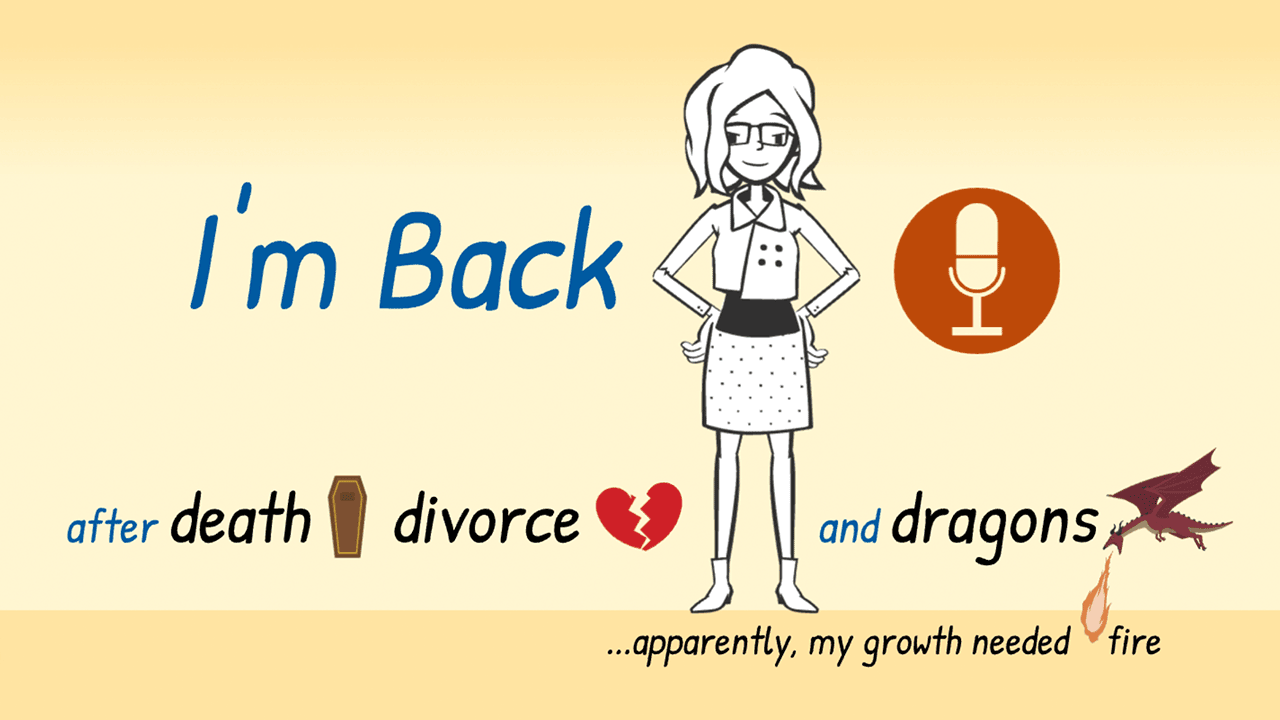The Reality Algorithm
Feb 26, 2024
🎧 👉 Prefer audio? You can also listen to me share about this in podcast episode #098 here.
Online algorithms influence how we behave—they control what shows up in our searches and on our feeds. And then the content that we see (and has been controlled by the algorithms) can influence what we respond or react to, what we think, what we believe, and what actions we take.
Offline, we also have algorithms that affect us. I’ve heard this described by Jessa Reed as the "Reality Algorithm."
The Reality Algorithm is really no different than an online algorithm.
Overall, what you pay attention to determines how you perceive the world, whether its online or offline.
Your brain has something called the Reticular Activating System (RAS), which is a bundle of nerves in your brainstem, and it basically is the gatekeeper from your unconscious mind to your conscious mind. If you didn’t have this gatekeeper, you’d be overloaded trying to consciously process billions of pieces of data at any time. The RAS basically filters out loads of information so only the important stuff gets through.
But what qualifies as important? Well, that depends on you and what you are paying attention to.

There’s a 1990s study called the “invisible gorilla experiment.” The participants were watching a video of students passing basketballs, and half of them didn’t notice a person randomly appearing in a gorilla costume because they were so focused on their assignment of counting the number of passes. So, for half of these people, their Reticular Activating Systems filtered out the gorilla and made it invisible to them.
Have you ever had an experience where you were thinking about getting a certain type or color of car, and then you started seeing that same type or color of car everywhere? It’s not that suddenly everyone went out and bought those cars; that’s your RAS at work. It filtered that data until you started considering that car or color, and then it determined that data was now important.
Or have you ever been in a busy place and then suddenly heard your name being called, and your attention quickly shifted? That's also your RAS at work.
If you don't make a concerted effort to train your RAS to focus on things that will improve your life, it will simply go along filtering things out based on whatever you've focused on in the past. Its job is to conserve energy and keep your conscious mind from overloading.
But does it know what's truly BEST for YOU?
No. No, it doesn't. Because what is truly best for you often includes things you aren't used to focusing on. Especially when you're in any kind of transition.
I work with many high-functioning, super-smart, and successful people who are at some kind of transitional phase, either in mid-life or around retirement. They're realizing that they need to rewire their brain to allow them to move through the transition more smoothly because if left to their own devices, aspects of the brain, such as the RAS, come into play and limit the opportunities and possibilities that they are able to see. Then, the fear center gets on board and raises flags for all the ways the person is moving outside of their comfort zone, away from old, familiar thoughts and behaviors.
When I'm working with clients, we dig into how they operate — specifically, how they can get triggered to get on their Wheel of Fear and what that looks like for them, and then how they can get off of that wheel and move over to their Wheel of Freedom.
Momentum is key here.
The longer you spend on your Wheel of Fear, the faster it spins, and the more you'll feel negative feelings.
The sooner you can move over to your Wheel of Freedom, the faster that spins and the more you'll feel whole, and for many people, that's some version of feeling more peace of mind.
The trick is to make new choices and point your attention in new ways, to retrain your RAS, to master your fear, and to curate your online and offline feeds so that your reality reflects your living your best life. And as we say in Fearless Living, "to live the life your soul intended."
So what can you do?
Online: unfollow, unsubscribe, leave some groups...then start following people and pages that serve your soul, make your heart happy, and increase your peace of mind. Pay attention to the news, but in limited amounts and not inside your feeds. I subscribe to one daily email from a trusted news source to stay current yet not become emotionally overwhelmed or influenced by the algorithms.
Offline is really no different. Do more of what lights you up. Do less of what depletes you. Acknowledge yourself for all the seemingly little things you think, say, or do each day that make your day better or help others improve their day. Fully receive compliments. Practice focusing on how amazing you are. Live more from your heart than your mind. Be willing to get support to retrain your brain.
I'm here for you. Ready to work with me privately? Let's outsmart the algorithm together. Reach out to me here.
“Where Attention goes, Energy flows.”
– James Redfield
🎧 👉 Prefer audio? You can also listen to me share about this in podcast episode #098 here.





